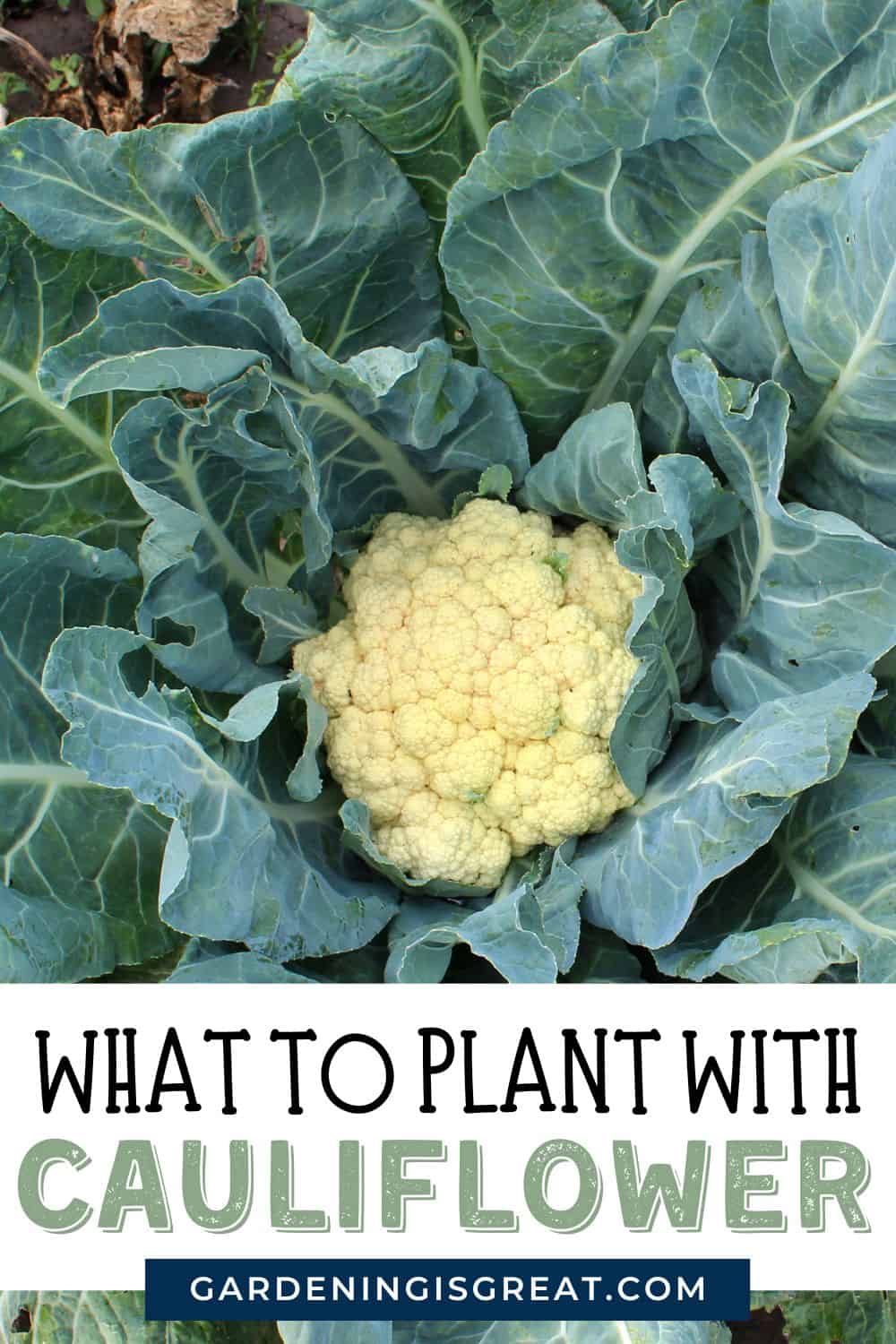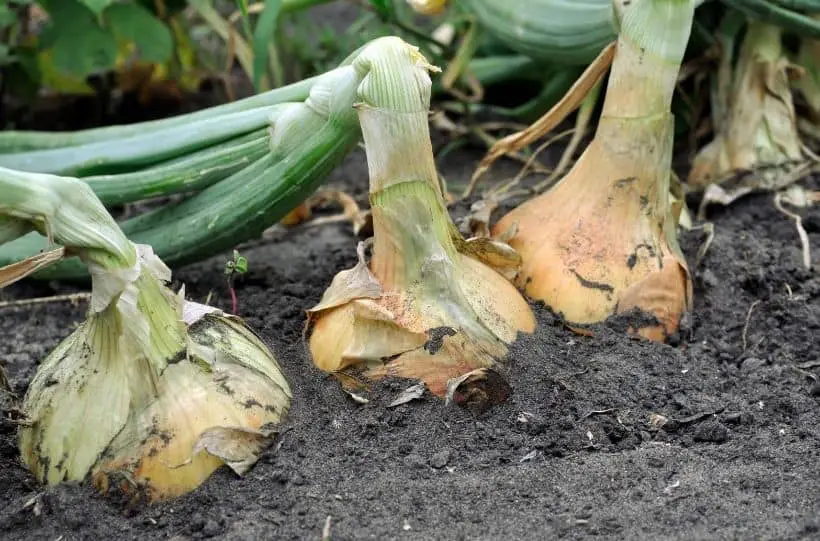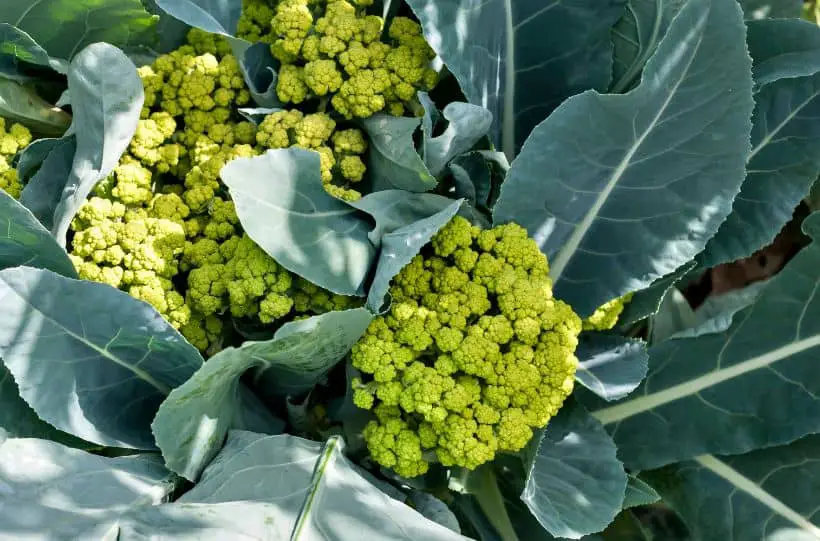8 Ideal Cauliflower Companion Plants
Cauliflower is a distinct part of the Brassica family, with its large green leaves and full head of white flowers. As they need quite a lot of room to grow and have deep roots, certain companion plants can’t be planted alongside cauliflower.
Cauliflower not only requires a lot of space and nutrients but depending upon the variety, can take anywhere between 3-5 months to mature. This also needs to be taken into consideration when planning your vegetable patch.
Hence the best cauliflower companion plants are those with shallower roots, do not require as much space, and minimize the risk of pests so that your cauliflower plants can mature.
Take a look at some of the best cauliflower companion plants below:

8 Cauliflower Companion Plants
Planting a combination of these companion plants will benefit your cauliflower crops and help ensure a successful harvest.
Beans
Beans are an ideal companion plant for many different vegetables but are a particularly great choice to plant with cauliflower.
As beans tend to grow upwards, they don’t compete for ground space alongside cauliflower. Instead, bean plants provide essential shade to cauliflower plants during the summer months.
As cauliflower takes a lot of nutrients out of the soil, bean plants also help ensure the soil isn’t deficient by replacing essential nutrients such as nitrogen into the soil.
Celery
Celery is another companion plant you should be planting with your cauliflower. Firstly, celery relies heavily on the water in the soil as it grows, leaving the majority of nutrients to cauliflower.
Secondly, celery has strongly scented leaves that help attract pests such as white cabbage moths from your cauliflower plants. Plus, the aromatic leaves help attract beneficial pollinators helping your cauliflower to grow.
Onions
Similar to celery, onion is also aromatic and deters many pests that specifically feed on brassicas such as cauliflower. Pests like caterpillars and aphids do not like the scent and are repelled.

Onion plants also do not need as many nutrients as cauliflower and so neither compete against one another as they mature.
Thyme
Although you cannot plant herbs with several crops, cauliflower is quite the opposite. Cauliflower grows especially well alongside thyme. Due to its strong aroma, it helps to deter cabbage moths, flea beetles, and caterpillars from attacking your cauliflower plants.
Garlic
Due to being in the allium family alongside onion, garlic is also a great companion plant due to its pungent smell.
However, garlic also produces a sulfur compound in the soil that resists fungi. Not only does this help to protect your garlic plants, but also other crops surrounding your garlic. This helps protect your cauliflower from above and below the ground.
Hyssop
Hyssop is brilliant in two ways. Firstly, its strong aromatic scent helps to deter pests away from your cauliflower plants as they feed on the hyssop plants instead.
Secondly, the scent, vibrant flowers, and high amount of nectar make them extremely attractive to pollinators. Attracting pollinators to your vegetable patch helps fertilize your cauliflower plants so that they can produce seeds for you to grow the following season.
Yarrow
Yarrow is another flower that is particularly beneficial for your cauliflower due to the type of insects it attracts.
Yarrow’s bright, yellow flowers help to attract wasps, hoverflies, and ladybugs. These insects feed on pests such as aphids and caterpillars, which would otherwise be feeding on your cauliflower plants.
Peppermint
When grown with care, peppermint makes an excellent companion plant for cauliflower. Its strong scent helps to deter pests away from your cauliflower, while its flowers attract beneficial insects such as hoverflies and bees.
However, care is needed as peppermint can quickly take over as it spreads rapidly. It either requires lots of regular maintenance to prevent it from overpowering your cauliflower plants. Alternatively, consider planting it in containers around your crops.
What NOT To Plant With Cauliflower
Although many plants can make excellent companion plants for cauliflower, some should be avoided at all costs. These plants will inhibit your cauliflowers growth by either attracting pests or competing for nutrients.
Peas
Unlike beans, peas should never be planted alongside cauliflower. Peas will inhibit the growth of your cauliflower plants and lead to a bad harvest.
Strawberries
Strawberries unfortunately are a very attractive plant to several pests, especially slugs, that cauliflower is also susceptible to. Therefore it is not a good idea to plant them together as they become a prime target for pests to feed on.
Tomatoes
Tomatoes are renowned for requiring large amounts of nutrients. If planted directly alongside your cauliflower, both plants will end up competing against the other.
Pumpkins and Corn
Although these two plants make excellent companion plants when planted together, they can have a detrimental effect on your cauliflower.
Pumpkins require a lot of ground space while corn grows tall. Each of their crops and leaves will block too much sunlight and will compete for nutrients against your cauliflower plants.
Melons
Melons too, similar to pumpkins, require lots of ground space for growing and will take away vital sunlight from your cauliflower crops.
Broccoli
As broccoli and cauliflower are from the same family, they are both susceptible to the same pests. Planting them together will encourage more pests to attack your crop.
Plus, they are both heavy feeders and will compete for nutrients in the soil leading to a stunted growth for some, if not all your plants.

If you are looking to grow cauliflower, dedicate some time to planning your vegetable garden accordingly. Be very careful to select companion plants that grow well alongside your cauliflower plants, rather than inhibiting their growth.
It is really important to not plant any of the crops from the avoid list above so that your cauliflower doesn’t have to compete for space and nutrients or have an increased susceptibility to pests.
For more top tips on which vegetables can be planted together, take a look at some of these companion planting guides below:
